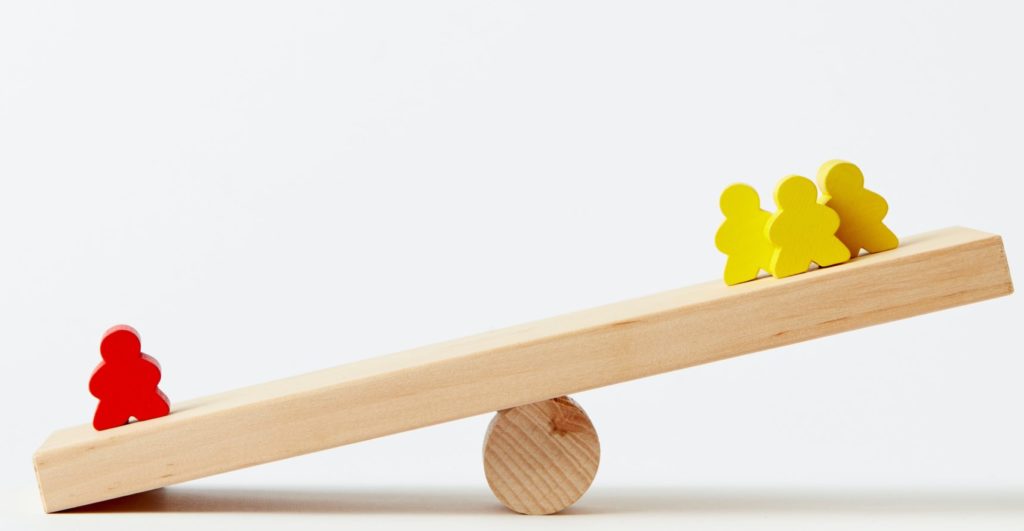Trading is not just about numbers. What’s even more important in trading than interpreting relevant data is controlling your emotions. One of the main differences between a professional trader and a beginner is the ability to maintain psychological perseverance.
Traders are constantly confronted with an avalanche of information: market data, expert opinions, and public sentiment about the current prices. What’s more, this information is often contradictory, incomplete, and changing all the time. It’s in this emotionally challenging environment that you as a trader need to make important decisions. If you can’t keep it together, you will inevitably make mistakes. That’s why understanding trading psychology is vital to becoming a successful trader.
What Is Trading Psychology?

Trading psychology refers to what happens inside a trader’s brain — specifically, why traders consistently and repeatedly make irrational mistakes that cost them money. These mistakes are well-studied and predictable. So, if you understand them, you can use strategies to avoid making these mistakes yourself.
As the champion day trader Martin Schwartz said: “Trading is a psychological game. Most people think that they’re playing against the market, but the market doesn’t care. You’re really playing against yourself”.
Some common examples of mistakes traders make include prematurely entering a market, the inability to cut off losses, and excessive trading frequency. Each of these mistakes is costly and driven by core psychological motives. Understanding your personality type can help you recognise which trading mistakes you’re most vulnerable to.
Classification of Traders by Personality Type

One of the most useful psychological frameworks for understanding personality types is the Myers-Briggs Type Indicator. You’ll get a personality type represented by 4 letters. For example, ENFP or ISTJ.
Each letter represents one of the four ‘preferences’ of your personality. No score is definitively better or worse than the other. They all have unique advantages and disadvantages.
Introversion (I) vs Extroversion (E)
When talking about psychology, introversion and extroversion refer to a person’s orientation towards either the inner (psychological) or the outer (physical) world. When we think of a classic introvert, we usually picture a person sitting in the corner of the room observing the party and their own thoughts, while an extrovert is the life of the gathering.
Introverted traders tend to concentrate on getting better by focusing on their inner understanding and improving their own results. There are many famous trading introverts, such as Michael Burry from the movie The Big Short. Michael Burry has said: “My natural state is an outsider, and no matter what group I’m in or where I am, I’ve always felt like I’m outside the group and I’ve always been analyzing the group.”
Burry may be an outsider in social situations, but his analytical nature and focus on his own skills allowed him to predict the US housing bubble of 2008 and earn billions of dollars.
Extroverts tend to focus more on the outside world. They may be better served by building a strong social network of smart traders to collaborate with. Whether you’re introverted or extroverted, make sure you take advantage of your strengths.
Sensing (S) vs Intuition (N)
This preference refers to how we perceive information, which is a critical part of being a successful trader. Sensing traders tend to see data in a very literal way. They like to operate with hard facts and analyse specific market indicators. Intuitive traders like to think in abstract concepts that emerge from interpreting the data in front of them.
You can see how too much of either of these styles could quickly lead to trading mistakes. Reading everything too literally will blind you to underlying trends and harder-to-grasp situations emerging in the markets. At the same time, focusing on the big picture will lead you to make many short-term mistakes. Understand which preference you have here and try to make sure you pay attention to the other side of things as well.
Feeling (F) vs Thinking (T)

Feeling and thinking refer to the criteria we use to make decisions – either by listening to our feelings or by thinking rationally. When trading, it is crucial to listen to the voice of reason more than your feelings. Emotions like fear, excitement, and greed can lead to irrational and unprofitable decisions. This can be especially dangerous if you’re the feeling and the extroverted type.
If you’re the feeling type, it’s important to make an effort to focus on your decision-making process. Have your trading decision process written down and make sure you follow it every time when using your trading platform to invest in bitcoin, stocks, or commodities.
Perceiving (P) vs Judging (J)
Perceiving and judging refer to our attitude towards the outside world. Perceivers like things to be open-ended and tend to delay making decisions. Judgers like to have things finalised quickly and prefer things to be in order.
You can see how each of these preferences can suit a particular trading style. If you’re a perceiver, you’ll likely love the chaos of the markets and stay up late into the night waiting for that perfect opportunity to trade. You can achieve success with this strategy. If you’re the judging type, you may build a more rigorous trading routine, with particular time blocks scheduled for research and making trades.
Each type can be the characteristic of a successful trader, and neither is predominant in the industry. The judgers simply have a more organised routine than perceivers, but it is not an indicator of accomplishment.
How to Avoid Mistakes in Trading?

Avoiding psychological mistakes in trading is about understanding your own psychology so you can take a mental step back and see when you’re being irrational. Think about your personality type and ask yourself some questions about your own behaviour. Or, better still, ask someone you trust.
Do you spend too much time thinking and never talk to anyone else no matter how knowledgeable? Maybe introversion is playing against you in this case. Do you make too many impulse trades? Then you might need to work on organising and planning your trading routine more. Do you rush into the market because you feel like you’re going to miss out? You have FOMO (the fear of missing out) and you definitely need to work on the thinking side of your personality.
How to Master the Psychology and Discipline of Trading?

Brett N Steenbarger is a renowned trader, author, and professor of psychiatry. He’s about as qualified as you can be on the subject of trading psychology. He believes that to trade effectively, you need to become your own psychologist and coach. To do this, a great place to start may be his book, Trading Psychology 2.0. Or, you can take a look at this comprehensive list of books on trading psychology to find one that you feel will help you grow as a professional.
Conclusion
Understanding trading psychology (especially your own trading psychology) can be the determining factor in whether you become a successful trader. Your own subconscious will pull you in all different directions when turmoil hits the markets, and you have to know how to react. Luckily, if you know your personality type, you can see how it’s affecting your trading and start using it to maximise your profits.

